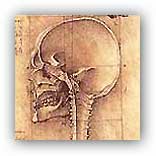News and Insights for
your best life. Online since 1998
- Home Health
- Breaking news
- In caso di...
- Per saperne di
più... - Medicina occidentale
- Medicine complementari
- Medicina cinese
e agopuntura - Omeopatia
- Fitoterapia

Swedish researchers say they have devised a blood test that could better diagnose sports-related brain injuries and prevent players returning to the field in danger.
The researchers said their method can show just an hour after a head injury how severe the concussion is, whether there is a risk of long-term symptoms, and when the player can return to the sport and it could even be used in general in emergency medical care to diagnose brain damage from concussions regardless of how they happened.

While mild concussions don't generally cause loss of consciousness, they can induce other symptoms such as dizziness, nausea, trouble concentrating, memory problems and headaches. Severe concussions can cause a loss of consciousness. Most concussions get better in days or weeks, but some patients can suffer symptoms more than a year after injury.
Just half way into last year's season, 35 of 288 players in the Swedish Hockey League had already had a concussion. Researchers at Sahlgrenska Academy, who surveyed all of the players in the league's 12 clubs, have now developed a method that can show just an hour after the injury how severe the concussion is, if there is a risk of long-term symptoms and about when the player can return to the game.
The goal of the unique study was to find safer methods of diagnosing sports-related brain injuries, and to obtain a better basis for decisions about when the player can return to the game.
In the study, the players who had a concussion were asked to provide repeated blood samples, directly after the concussion and during the ensuing days. The results were compared with the pre-season samples from two full teams.
This way, Professor Henrik Zetterberg and his colleagues could show that a special nerve cell protein, called tau, at elevated levels in the blood is a marker of concussion.
By measuring the tau levels in a regular blood test, the researchers could say how severe the concussion was just one hour after the injury, and with a high level of certainty could predict which players would have long-term symptoms and thereby needed to rest longer.
"In ice hockey and other contact sports, repeated concussions are common, where the brain has not finished healing after the first blow. This kind of injury is particularly dangerous, but there have not been any methods for monitoring how a concussion in an athlete heals," says Henrik Zetterberg.
Henrik Zetterberg is among the world's leading brain researchers and has conducted research on concussions in sports for many years and in numerous studies. According to Zetterberg, the new findings are not only relevant to ice hockey, but to all sports where there is a risk of head injuries.
"In contact sports like ice hockey, boxing and American football, concussions are a growing international problem. The stakes for the individual athlete are high, and the list of players forced to quit with life-long injury is getting ever longer," says Henrik Zetterberg.
"We hope that this method will be developed into a clinical tool for club physicians and others in sports medicine, and is used as a basis for the decision on how long the player should rest after a blow to the head," says Henrik Zetterberg. “It could even be used in general in emergency medical care to diagnose brain damage from concussions regardless of how they happened.”
Yelverton Tegner, a researcher at Luleå University of Technology and also physician for the Swedish national women's football team, is positive:
“Our goal is to have a working kit that can be used for diagnostics in hospitals, and perhaps also at rink side in stadiums immediately when someone got a concussion”.
The study was conducted in cooperation with researchers at the Luleå University of Technology, Sahlgrenska University Hospital and the US biotech firm Quanterix Corporation.
The article Blood biomarkers for brain injury in concussed professional ice hockey players was published in JAMA Neurology on 13 March.
http://archneur.jamanetwork.com/article.aspx?articleid=1846623
See also
Insights into Brain Injury (2014-01-14)
For more information
University of Gothenburg, Sweden
The Sahlgrenska Academy
MDN
del Dott. Turetta
Quali sono i problemi o le disfunzioni che possono giovarsi di un intervento omeopatico d'urgenza e, di conseguenza, come dovrebbe essere un ideale armadietto medicinale omeopatico casalingo.- Home -
- Health -
- Depressione -
- Sexuality
- Environment -
- Food -
- Musica -
- Capirsi -
- Grafologia -
- Ridere
Copyright © 1998/2018 www.mybestlife.com tutti i diritti sono riservati eccetto quelli già di altri proprietari.
.In caso di
Pubblicità
Per saperne di più su
Pubblicità
Pubblicità
Pubblicità
Pubblicità


